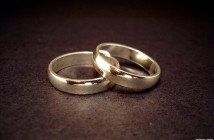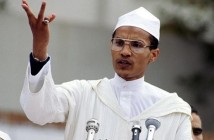An essay written by David Ottaway, a Senior Scholar at the Woodrow Wilson Center who speaks a “new constitution requiring an elected rather than an appointed prime minister, the first such step in any of the eight monarchies or even most of the democratic republics of the Arab world.”
Read more: http://www.sacbee.com/2011/06/24/3725830/moroccans-get-ready-for-landmark.html#ixzz1QOtozBuV
The Arab Spring has broken out in Morocco pushing King Mohammed VI to put forth in lightning speed a new constitution requiring an elected rather than an appointed prime minister, the first such step in any of the eight monarchies or even most of the “democratic” republics of the Arab world.
If approved in a referendum on July 1, the document would oblige the king to share some of his absolute power with a variety of institutions and civilian figures, pushing the country down the road toward a Spanish-style constitutional monarchy that reigns but does not rule. Officially, Morocco will become a “constitutional, democratic, parliamentary and social monarchy.”
The king’s critics point out that the wily monarch has artfully ensured that he will continue to rule a lot more than simply reign. They point out that he remains in charge of the religious establishment as “commander of the faithful,” of the armed forces as their ”supreme chief,” and of resolving all conflicts within the government as its “supreme arbiter.” He also can preside, if he so wishes, over the council of ministers in its deliberations on all strategic policy matters.
But the king can no longer fire the prime minister on a royal whim and must at least consult with him before dissolving either body of Parliament or appointing or dismissing ministers chosen by the elected “head of government.” The king will also share responsibility for security matters with civilian officials in a new High Security Council modeled after the U.S. National Security Council. Most importantly, he is committed to choosing the prime minister from the party that wins the most seats in Parliament at each election.
How did it come about that this 350-year-old monarchy has taken the lead among its Arab royal peers in embracing reform and keeping ahead of demands pouring forth from tens of thousands of protesters who are taking regularly now to the streets of Rabat, Casablanca, and scores of other cities, towns, and villages?
Moroccans are divided in their explanation. Some believe the 47-year-old king, who has ruled since the death of his father, King Hassan II, in 1999, has always wanted to be a reformer but lost his focus and interest in the mid-2000s. Also, they note he has been under little pressure to act from the ten parties represented in Parliament. In fact, it seems the general view of Morocco’s chattering political elite that all parties here are in serious need of new, more dynamic leadership.
The alternative view of the king’s sudden burst of reform zeal holds that the demonstrations that started here on February 20 jolted the king out of his political lethargy and convinced him to get ahead of demands and pressures from the street. In the four months since the first protests, the February 20 Movement, as it is called here, has spread and taken root in over 100 towns and cities.
The movement has somehow succeeded in forging an unlikely coalition of bedfellows—Islamists, who heretofore had refused to have anything to do with politics, and militant, extra-parliamentary socialists, communists, and other leftist groups. It has no national leadership, and Facebook serves as the main means of communication and coordination. Each town and city has its own independent committee and holds “general assemblies” weekly to decide when to protest and over what. Their demands include everything from more jobs and an end to corruption to an elected constituent assembly to write a new constitution reducing the king to a figurehead.
Just about every party official or Moroccan analyst interviewed over a week here seemed to agree that whatever criticism one cares to level at the February 20 Movement—from its coalition of ideological extremes to its amorphous, leaderless character—it has proved invaluable in shaking up Morocco’s stagnant political parties and in enrolling tens of thousands of Moroccans into the political process for the first time.
So far, a half dozen nationwide protests have resulted in just one death, Kamal Ammari, who was picked up by police after attending a May 29 protest and badly beaten. The cause of his death remains disputed. But Ammari has not become acause célèbre like Tunisia’s Mohammed Bouazizi, the street fruit vendor whose self-immolation in reaction to police abuse galvanized Tunisians into forcing President Ben Ali to flee the country.
The initial reaction of Morocco’s main parties to the new constitution has been generally favorable. The main Islamic-oriented Justice and Development Party (PJD) raised a hue and cry over the language spelling out Islam’s role even before the king’s official unveiling of the new constitution on June 17. It succeeded in knocking out of the text the term “freedom of faith,” which it regarded as calling into question the primacy of Islam and opening the door to conversions to Christianity or other religions. Instead, the new constitution states that Islam is the “religion of state which guarantees to all the free exercise of religion.”
The PJD, which aspires to lead the next government, was happy with the outcome. Mustapha Kalfi, a party strategist who heads its “think tank,” described the new constitution as “a huge change” that indicated Morocco was heading toward a real democratic monarchy. “We are moving from a system where the king is the governor to one where he is the judge-advocate,” he remarked.
The king, he said, had saved Morocco from “Egyptian-style elections” that had manufactured huge artificial majorities for the governing party under the three-decade authoritarian rule of President Hosni Mubarak. Kalfi predicted that the king’s recently created Authenticity and Modernity Party had no future and would be replaced by the PJD in the “swing role” in determining the direction of Moroccan politics.
The PJD’s support is crucial to the king as a means to counter opposition to the new constitution from the more fundamentalist Islamic Justice and Spirituality Party (JSP), which has refused to participate in the politics of the country. Its spokesman, Fathallah Arsalan, said that in order for a new constitution to be credible, an elected constituent assembly, not a royally appointed commission, had to draw it up. His party intends to call for a boycott of the July 1 referendum.
The February 20 Movement also seems likely to boycott the referendum, though each city and town committee will decide on its own. Thousands turned out in Casablanca already on June 19 to express their opposition.
In any case, leaders of the National Council for Support of the February 20 Movement predicted demonstrations would continue after the referendum. The council’s coordinator in Rabat, Mohamed Elaweni, envisaged that the movement would survive its inherent Islamic-leftist contradictions to become a “civil and peaceful revolution that changes the regime from within.”
One concern among secular Moroccan politicians is that the movement, started by leftist youth and trade unions activists, is slowly being taken over by anti-government Islamists, notably the JSP. Khalid Hariri, a deputy from the Socialist Union of Popular Forces, one of Morocco’s oldest parties, said he had noticed a growing percentage of protesters at rallies he had attended in Casablanca came from this Islamic party. It was hard to tell, he said, whether it had “10,000 or 100,000 followers” because it bussed them around from one protest to the next.
Morocco may discover the answer to what Hariri called its “Islamic mystery” on July 1 when the country votes on the new constitution. Showing the growing disillusionment with the political system here, only 37 percent of Moroccan voters bothered to turn out in the last parliamentary elections in 2007.
A similar lack of enthusiasm for the new constitution could spell real trouble ahead for the king. Hardline Islamists of the JSP, like the youth of the February 20 Movement, are banking on both a low turnout and a low “yes” vote to revive their cause. “There is general skepticism now, and it will grow when youth see nothing has changed,” predicted JSP spokesman Arsalan. “With skepticism growing, nobody can control the people’s anger.”
The upcoming referendum vote will almost certainly be taken by all sides as a prime indicator of the Moroccan monarchy’s health and well-being under the pressures building from the democratic wave rolling across the Arab world that has come to engulf Morocco.






